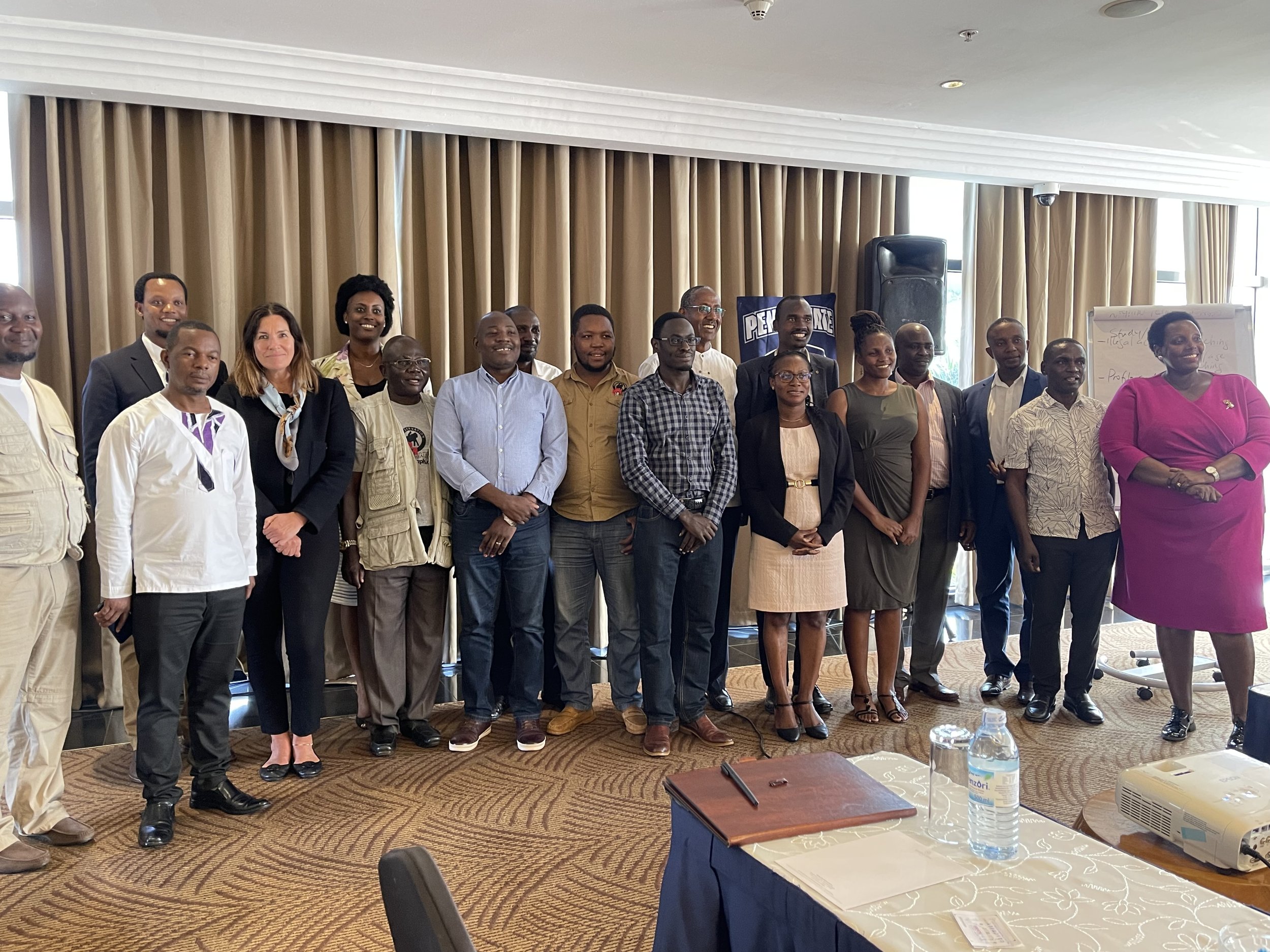
The Uganda Chapter of the HWCRN
The Human-Wildlife Co-existence Research Network (HWCRN) held its inaugural workshop in Kampala at the end of July 2023. The purpose of this workshop was to bring Ugandan stakeholders together to discuss the status of HWR in Uganda and to lay the foundation of the proposed network.
The workshop was held in the Sheraton Hotel in Kampala for half a day. The first part of the meeting focused on understanding existing knowledge, tools, and actions already deployed to address the human-wildlife challenges in Uganda toward establishing a baseline. The second part of the meeting focused on the problems (and driving forces), barriers, and potential solutions for the challenges faced with HWR in Uganda. The final part consisted of a discussion to identify areas of focus for the HWCRN when it is fully established from 2023/2024 and beyond.
Uganda Chapter Members
-

Jim Ayorekire, PhD
Senior Lecturer of Tourism Planning and Management, Makerere University
Chapter Co-Lead
-

Sharon Kamuganga
Conservationist and Warden Human-Wildlife Conflict Management, Ugandan Wildlife Authority (UWA)
Chapter Co-Lead
-

Patrick Agaba
Programme Manager, Uganda Conservation Foundation (UCF)
-

Peter Ainebyona
Kibale Association for Rural and Environmental Development (KAFRED)
-

Dr Caroline Asiimwe
RTI-B4R
-

Richard Bagyenyi
Program Coordinator, Conservation Through Public Health (CTPH)
-

Richard Kawere
Lecturer, Makerere University Business School (MUBS)
-

Vanice Mirembe
Manager of Conservation, Education and Awareness, Ugandan Wildlife Authority (UWA)
-

Lubega Paul Muwonge
Field Officer, Uganda Community Tourism Association (UCOTA)
-

Dr. Amos Ochieng
Founder and Director, Encounter Africa Safari Limited
Lecturer in the Department of Forestry, Biodiversity and Tourism, Makerere University
Director, AMOVIK International Consult limited
-

Stephen Rubanga
Co-Founder and Chief Veterinary Technician, Conservation Through Public Health (CTPH)
-

Dr. Taddeo Rusoke
Executive Director, Wildlife Clubs of Uganda (WCU)
Senior Academic Staff of Natural Resources Management and Sustainable Tourism, Mountains of the Moon University (MMU)
-

Lule Godfrey Ssemwanga
Partnership Consultant - Chimpanzee Trust
-

Justus Tusuubira
Uganda Liasion Officer, Space for Giants (SFG)
-

Robert Baluku
Principle, Uganda Wildlife Research and Training Institute (UWRTI)
-

Kaamu Bukenya
Finance and Administration Manager, Conservation Through Public Health (CTPH)
-

Dr. Watuwa James
Chief Veterinary Surgeon and Head Veterinarian, Riyadh Zoo
Co-Founder and CEO of Endangered Wildlife Conservation Organization (EWCO)
Uganda Chapter workplan 2023/2024.
-
Conduct a baseline study that focuses on:
(1) community livelihoods and needs,
(2) nature of challenges in HWR and levels,
(3) land-use changes,
(4) interventions
-
Data and information collection and synthesis to be made available and focusing on academic research, NGO materials and reports, and others. This should include lessons on interventions
-
Sensitisation and awareness raising amongst all stakeholder audiences – on co-existence, existing laws, role of conservation and animal behaviour.
This should include the creation of an education handbook and teaching materials for teachers and Wildlife Clubs
-
Produce videos of experts and communities (including in local languages) sharing their knowledge on:
(1) interventions,
(2) case studies,
(3) animal behaviour and biology.
-
Create capacity building materials and disseminate using the Uganda Wildlife Authority’s structures.
The group discussed how the management of Human-Wildlife Conflict in Uganda can be improved, and specifically identified areas of action and focus for the HWCRN. The group agreed to form the Uganda Chapter of the HWCRN. There was alignment around the following outcomes, with a target date of achieving these priority outcomes by the next/forthcoming HWCRN meeting in mid-2024.


